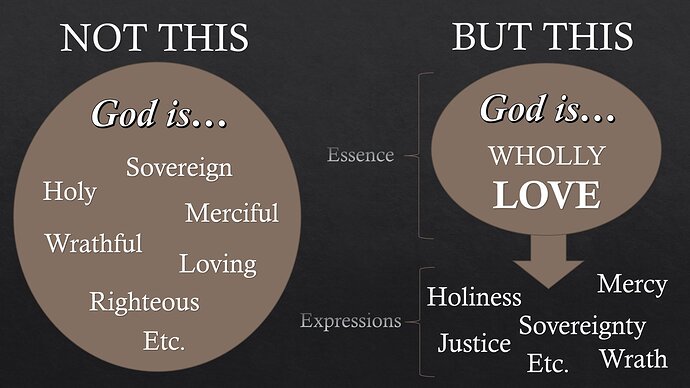Continuing the discussion from MacDonald (selections from Lewis):
Rabbit Trails:
Religious Affections provides a view of a very different side of Edwards. In no way is it divorced from the theology that informs SiHoAG, but one sees the warmth of his love for and deep delight in his Savior. Much like one sees in Valley of Vision: A Collection of Puritan Prayers & Devotions. Puritans and their theological grandchildren are treated as one-dimensional caricatures without reference to their culture, time, intellectual and theological heritage, etc. Just as the Radical Reformers are.
If you find MacDonald’s (1824 - 1905) formal, archaic language challenging, Edwards’ (1703 - 1758) will be even more so. Gerald MacDermott wrote a modernized version of it called Seeing God : Jonathan Edwards and Spiritual Discernment (2000) that is very readable – a good intro to the ideas and structure, if one wants some help with the original.
Edwards’ unyielding adherence to orthodox doctrine lead to his dismissal from his church. His later life was spent as a missionary to Native Americans and died by participating in an early medical study of smallpox inoculations.
How interesting you should bring this up. I’ve been reading City on a Hill : A History of American Exceptionalism by Abram C. Van Engen on the recommendation of a historian friend. It’s been a frustratingly excellent book. In one section the author discusses the effect that the use of two different Bible translations/editions had on the theology:
Beginning in 1611, two English translations of scripture vied for authority: the King James Version, authorized by King James I (1603–1625), and the Geneva, produced by Calvinist scholars in Switzerland fifty years earlier. Before the KJV appeared, the Geneva was the most widely read Bible in English, running through 140 editions between 1560 and 1644. It had emerged from a context of persecution and exile.
…
The Geneva divided chapters into verses for the first time in English, and it annotated those verses with moral explanations and theological glosses—an immense Calvinist commentary of over three hundred thousand words crowding every single page. In addition, the Geneva Bible cross-referenced passages, so that someone reading Romans 13:9 (“Thou shalt love thy neighbor as thyself”) would also be directed to Leviticus 19:11, Matthew 21:39, Mark 12:31, Galatians 5:14, and James 2:8. In other words, the Geneva Bible conceived of scripture as a vast system of unified meaning, a web of scriptural passages interlinking, paralleling, and supporting one another.
In Baptist churches, I’ve been used to the idea of the Bible being a unified collection of texts that are used to interpret each other. In our new church, people I know see it as much more interconnected, a single, unified whole, just as described above in the description of the Geneva Bible. There is a history of this view, so it seems.
I would say I’m one of them. I don’t see easy answers to questions about scripture, doctrine and faith in the modern/postmodern world. Working with texts that tell us something so important but from a thought and information world so entirely different from our own forces us to either deny one thing or the other, or struggle. I think the struggle is worth it. But I won’t deny it’s there.

